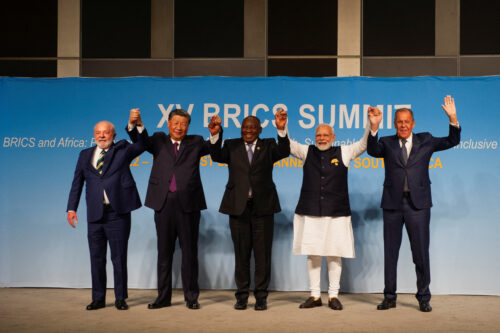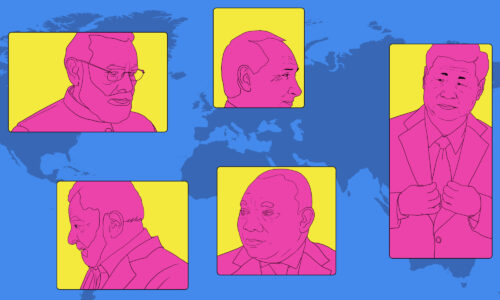India signs U.S. deal to make missiles ‘deadlier,’ with eye on Chinese border troops
As tens of thousands of troops on the India-China border brace for a freezing Himalayan winter, the U.S. signed an agreement with India to provide geospatial information — the kind that could help India track and target Chinese border troops.

Since May, when a long-standing border conflict between India and China flared up again over infrastructure development, troops have been amassing near the Line of Actual Control (LAC).
- After that conflict turned bloody on the night of June 15, the number of troops has multiplied on both sides, though further casualties have been avoided.
- Meanwhile, negotiations grind on, and tensions continue to escalate — including the first use of firearms on the border since 1975.
- China now has up to 60,000 troops in the border region, U.S. Secretary of State Mike Pompeo said earlier this month.
Pompeo just concluded a trip to India, which included the signing of a military-information-sharing agreement focused on satellite and map data — the kind that could help India track and target Chinese border troops.
- The Basic Exchange and Cooperation Agreement (BECA) on Geospatial Cooperation will “give India access to a range of topographical, nautical and aeronautical data that is considered vital for targeting of missiles and armed drones,” Reuters reports.
- BECA is explained as a deal to “make Indian missiles deadlier” by the Economic Times of India, which adds that it is “the last of the pacts that America signs with close partners.” Three previous agreements dealt with logistics and other sensitive information sharing.
- The pact was “under discussion for more than a decade,” the Economic Times says, but any “misgivings about forging such agreements with the United States” have “all but disappeared,” the Washington Post reports.
Indian officials avoided mentioning China in their remarks about the deal, or about Pompeo’s visit more generally. Meanwhile, U.S. Defense Secretary Mark Esper, who accompanied Pompeo on the trip, talked openly about countering “increasing aggression and destabilizing activities by China.” A joint statement from Pompeo, Esper, and their two Indian counterparts included some language that was clearly written with China in mind:
The Ministers reiterated their commitment to maintaining a free, open, inclusive, peaceful, and prosperous Indo-Pacific built on a rules-based international order, underpinned by ASEAN centrality, rule of law, sustainable and transparent infrastructure investment, freedom of navigation and overflight, mutual respect for sovereignty, and peaceful resolution of disputes.
What’s next?
“After New Delhi, Mr. Pompeo is set to visit Sri Lanka, the Maldives and Indonesia in an effort to bolster mutual relationships and strive for a consolidated Indo-Pacific against an assertive China,” per the Wall Street Journal.
He might not find a warm welcome in Indonesia, by far the largest of those countries, as Reuters reports today that Chinese “vaccine diplomacy” is contrasting somewhat with the U.S. approach to Southeast Asia:
Not only was it not promising any vaccine, but months earlier the United States shocked Indonesian officials by asking to land and refuel its spy planes in the territory, four senior Indonesian officials told Reuters. This would reverse a decades-long policy of strategic neutrality in the country.






